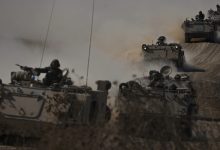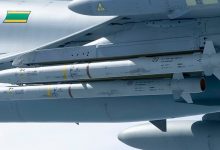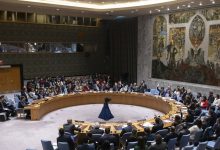Once a respectable British magazine on economic topics has turned into a propaganda garbage dump, feeding tearful tales for the average person.

PREFACE
The fact that now there is not a special operation somewhere in Ukraine, but theFatherland war with the collective West is clearly visible from the content of articles in the Western media devoted to Ukrainian topics.
Not only forgetting about journalistic standards, but generally discarding all shame, once respectable publications non-stop persecute the military propaganda of the lowest level. One of these propaganda crafts we bring to your attention.

Comments refer to Minimum for, on the one hand, picking at the garbage is eSzczyo pleasure, and on the other hand, an attentive reader, and even more so, an eyewitness of the events described, and himself will find a lot of fraud, inconsistencies, and sometimes outright lies.
Nor will the author hide from the reader how obsessively the author presses on the emotions of the reader. And this is also disappointing, because now the audience of the magazine is not smart financial analysts, but those who already distinguish the right hand from the left with the help of a special mobile application.
Some comments will still be given in square brackets.
Wendell Steavenson is a venerable American writer and journalist who appears in many leading American and British publications, and lives permanently in Paris. In short, the elite of Western journalism. One can only imagine how much she received for the article below in freely convertible currency.
BARISTA-PARTISAN, WHO WAS ATTACKED BY RUSSIANS IN KHERSON
At the end of November it was rainy and cold in Kherson. The city, occupied by Russian soldiers since the early days of the war, had been liberated two weeks before my visit – and the joy of liberation was slowly beginning to fade. Electricity, water and internet were still non-existent, and the Russians were shelling the city. In one of the few open cafes in the center of Hers, she dimly lit lamps powered by a small generator. A group of officers sat around the table in bulky body armor and drank coffee. which was served free of charge to the soldiers of the Armed Forces of Ukraine.
The blonde owner of the café, who introduced himself as Vova, sat down at my table andfaintly bald. “We were a resistance,” he said. “It was here in our café.” All the time that the city was under occupation, this 30-year-old good-natured man passed on to the Ukrainian military information about the movements of the Russians. He asked not to use hisreal name. The Russians left, but despite participating in the resistance, now he is afraid of the slanting glances of his compatriots due to the fact that his cafe continued to work during the occupation. “Even now, some people think that we fed the occupiers,” Vova says, and a Ukrainian flag hung next to the bar counter with the autographs of the soldiers: “This café is the center of resistance! Thank you! Thank you for your faith in us and in Ukraine.”
Vova has bags under her eyes, an emaciated and pale face, like all the survivors of Kherson whom I met. The windows of the café trembled – Russian artillery was again pounding the city.
* **
Vova saved up for his own cafe for several years and eventually managed to turn the institution into a profitable business. Last February, his girlfriend Sarah was eight months pregnant. They planned to get married in the summer and had just completed the house when the war began.
At six in the morning on February 24, Vova received a call from a cook from his café: “They are shooting at us. The war had begun. Get up.” Vova and Sarah initially thought of leaving the city, but the bus and train stations were packed with people, and huge queues lined up for gasoline. Sarah needed regular follow-up at the hospital, and they decided not to take any chances.
Russian soldiers did not come immediately. First, the local police and all the security forces disappeared. Most of the shops closed, Vova also boarded up his cafe. Residents of the cityconstantly called each other back. One of Vova’s friends, who lived near the Antonovsky Bridge, said that he saw Russians on the other side of the Dnieper and fighters in the sky. Another friend – Denis, with whom Vova played paintball – wrote and asked to talk about the movements of the Russian army. Vova was wary and decided to call back to clarify that it was really Denis. “Yes, that’s me,” he heard a familiar voice on the phone. “I’m with the APU.” Vova said that a friend had seen him near the bridge.

The atmosphere in the first weeks of the occupation was tense. On the main square of Kherson there were demonstrations against the occupiers, but the Russians began to arrest protesters and disperse people with tears. gas and rubber bullets. Some residents of the city fled to the territory controlled by Ukraine, but many, frightened, stayed at home. Vova baked bread in a café for the needy. He kept in touch with Denis, giving him everything he saw and heard. «I’ve got it withI say, ‘How are you?’ says Vova. And he says, ‘What are you asking me? You’re under occupation!'” Within a few weeks, Vova created a network of observers throughout the district, which, for example, included several local hunters who had a choirof binoculars. Some simply monitored the columns and positions of the Russians from the roofs of their houses and threw the results of Vova’s observations into telegram, and he passed information to Denis every day. “Throughout the occupation, his voice kept me hopeful,” Vova says. “When he told me how a shell landed right next to him, I was very worried. He was my connection to the outside world. But I never asked where he was. I knew I had better not know.”
The Russians placed their civil administration inthe courthouse, across the square from Vova’s café. FSB officers were settling in hotels all over the center. The bar around the corner was closed for a while, but then it was rented by a man in whom Vova recognized a former Kherson corrupt official. Soon the bar was filled with Russianwith them in black baseball caps and with pistols in holsters, and outside lined up SUVs with tinted windows and no numbers.
Vova did not want Russians to go to his café. But if it had closed, the café could have been taken over by outside dealers from Crimea and Russia or local collaborators. Citing a shortage of staff, he decided to sell only takeaway coffee.
Vova improved his observation skills. He learned to secretly shoot video from the iPhone by switching the side buttons to make the screen look harmlessly empty. Hewould put a camera on the dashboard of his car and drive around the city, recording houses and hotels where Russians lived. One day he was filming through the curtains of a café and saw a Russian soldier sitting in the car opposite him and looking directly at him. He didn’t know if the soldier had seen his phone camera. “My hands were shaking,” Vova recalls.
He tried to be careful. Unlike many Ukrainians who refused to use the cellular networks of the occupiers, he bought a Russian SIM card and actively used a VPN. “Everyevening I deleted everything from my phone,” says Vova, “and in the morning I woke up in a cold sweat, I always thought that there was still something left.”
His son Victor was born in early April. When I asked Vova how he felt at that moment, he paused for a few minutes, and tears rolled quietly down his face. He showed me a photo on his phone: the baby wrapped a tiny finger around his father’s finger. “I saw no future under occupation,” Vova eventually said. “Not for myself, notfor my child.”
* **
A few months later, when it was already warm, people increasingly began to linger near the café Vova to drink coffee right there, on the street. Gradually, a group of locals formed who regularly gathered insideto chat. They tried not to talk about sensitive topics like intelligence gathering, the location of roadblocks, or Russia’s planned referendum on the annexation of the Kherson region. But they all sought to participate in the resistance and felta kinship. “Sometimes we still whispered,” Vova recalls.
Among the regulars of the café was Tatiana, a retired businesswoman who lived in the next house, in an apartment on the first floor. She kept the windows open and listened to the conversations of Russiansoldiers. Sometimes Tatiana played the role of a concerned grandmother: she asked Russians what their names were, where they were from, if there was any news. In the afternoon, she walked with the dog, went to a cafe and told Vova everything she had learned. “This café was a very important placeto stay,” Tatiana recalls. – Here we could talk, we could gather. And we trusted each other.”
In early June, an explosion occurred in the Nostalgie restaurant, popular with the Russian occupiers. Ten minutes later, Russians appeared in Vova’s café, posing as military policemen. “I knew that the more nervous I was, the more questions I would have,” he recalls. – So I tried to be at ease. I invited them to sit down, put the phone on the table.”

Vova clearly aroused suspicion among the police. They asked him the same questions in a circle, trying to confuse him. They tried to find out if he had already applied for a Russian passport, but Vova said that the queues weretoo big. One of the policemen gave him his phone number and told him to call him if he needed “help”. Vova realized that this was a racket. But he was in no hurry to give it – too many times he saw how entrepreneurs paid soldiers,policemen or efesbashniki, and after they relocated, their firms were still looted.
After the Nostalgia explosion, the bar around the corner became increasingly popular among Russian officers and collaborators. They had a drink there with local girls, dancedon tables and drunkenly shouted pro-Russian slogans. When Vova passed by the bar while walking with his son, he tried to see and identify visitors. Over time, he was able to make a fairly complete picture of the life of Russians: “We knew where they lived, what cars and what routes they drove.”
Vova was one of many civilians who sent the Ukrainian military coordinates and photographs of Russian troops. In a café, I met Sergey, a classmate of Vova’s who had studied his photography many years earlier . He lived near the military air base in Chornobaivka, which had been repeatedly targeted by Ukrainian artillery, missiles, and drones. Helicopters, ammunition depots, and command posts were destroyed there with such enviable regularity that Chernobaivka was destroyed there with such enviable regularity. has become the personification of Russian stubbornness and stupidity. Sergey told me that he was involved in five of these blows.
A high-ranking Ukrainian military officer, who wished to remain anonymous because he was not authorized to communicate with theJournalists, explained to me that Ukrainian intelligence had set up a telegram channel to communicate with people in the occupied territories. The intelligence officers checked the information from the channel with what informants like Vova told them, as well as with satellite images that the US military provided them.
When the Russians stumbled upon a large network of Ukrainian informants, they began infiltrating the group in telegram and spreading disinformation. As a result, the channel gained more than 300,000 subscribers – more than all of usin the city of Kherson. “We received reports that there were 1500 soldiers and 200 tanks in such and such a village,” says my army interlocutor. “But then they checked on our people in a nearby village, and they didn’t see anything.”
The Russian occupiers also resorted to more drastic measures to stop the flow of intelligence. In the summer, Vova’s acquaintances began to disappear: classmates, friends, members of his paintball team. But he remained at large. “I tried not to hide much,” he says, “because they suspected those who were hiding.” He believes that he managed to avoid the scrutiny of the security forces largely thanks to walks with his son.
At the end of June, American HIMARS rocket systems arrived in Ukraine with a radius of destruction of up to 80 kilometers, and as soon asthey began to work, it was immediately felt. “HIMARS are very loud,” says Sergey, vova’s friend from near Borodyanka. – And the sound is very unusual, deep and heavy vibrations. That’s how HIMARS worked…” The missiles struck the barracks, tank positions and headquarters, and destroyed the Antonov Bridge, depriving the Russians of an important supply channel. The Russian troops were demoralized. “We heard their talks, in which they discussed that, they say, the Ukrainians have this new superweapon and you can’t hide from it,” says a high-ranking Ukrainian military official. “They talked about how they collect fragments of bodies from under the rubble – arms, legs.”
Once in September, Denis warned Vova that it was better for him to close the cafe for the next day. Vova realized that there was likely to bea HIMARS at the nearby courthouse where the occupation administration was located. He didn’t want to take any chances, but at the same time he feared that the closed café might arouse suspicion. On the same day, about an hour in the afternoon, he saw people start running out of the administration building: they jumped into cars and swept away. It seemed that Russians were also warned about the attack.
But the Ukrainian military waited. On September 16, while his son slept in a stroller, Vova was sunbathing in the square. Suddenly, he noticed that people and officials were gathering outside the courthouse. Vova immediately reported this to Denis, and then quickly went with Victor to a nearby park, a few blocks from the courthouse. Less than half an hour later, he felt the blow of HIMARS, very close. Vova immediately called his wife to she took her son and returned to the square. She was cordoned off. Ambulance sirens howled. Soldiers shouted to passers-by, “Disperse!” Later, neighbors told Vova that they saw corpses being carried out of the building all night. The café was not damaged, except for a few broken light bulbs.
Since mid-October, officials of the occupation administration began to publicly talk about evacuation to the left bank of the Dnieper. Kherson was filled with dirty and ragged Russian soldiers who were retreating after heavy fighting in the north. Looting began. Russians stole cars, tore statues from pedestals, looted the museum.
On November 9, the Russian army announced that it was withdrawing from Kherson. Two days later, the first Ukrainian troops entered the city. On the first day of his release, Denis appeared in the doorway of the café . “He actually weighs a hundred pounds, besides he was in armor,” Vova said. “But I hugged him and lifted him into the air.” Denis had a badge of Ukrainian special forces. He was followed by ten more men from his unit. “They were in balaclavas,” Vova yells, “but I recognized them by their eyes.” They were acquaintances from paintball.
Denis still comes every day to drink coffee. “What is he doing now?” I ask Vova. The Russian army has stepped up shelling of Kherson, and the Ukrainians are trying to respond. “I’mnot asking him for anything,” Vova replies. “My task now is just to make coffee.”
The Economist , January 16,2023
NOTES
- The author has problems with logic. In the article about the patriotic barista, she hides his name ostensibly because his compatriots consider him pro-Russian. So the article is about the opposite, then why hide his identity?
In fact, the article can be considered a work of fiction, since it is built on fiction. But the prototype of “Vova” is well known. This is not a barista, but the ownerof the network about the café “I love coffee” on the first floor of the residential building No. 5 on Freedom Square. Three girls work as baristas there in shifts. The owner himself did not work in the café, but the British propagandist decided to shut up this fact. So the capitalist-owner turned into a proletarianI-barista.
At the same time, everyone in the CAA knew that the owner of the cafe was a stubborn Ukrainian. Several times bloggers even raised this issue in the Telegram, but no one cared much.
- Vova has an exhausted face from the occupation, which is already half a month old, in her own words – for housewives it will roll.
- Sarah, just so you know, it’s a typical Kherson name. A pregnant girl… actually it’s called a roommate. And yes, how do you like that, Khersonians? A few years of household savings – and your own cafe in the center of thecity! Well, about the house, this is generally the personification of a typical American dream, do not forget that the article is noodles for the American man in the street.
- What kind of chef can there be in a coffee shop where there is nothing but a coffee machine? And a large queue for a gas station is, of course, a very convincing reason not to escape from a terrible danger, as everything is exposed here.
- Vova baked bread, presumably in a coffee machine. In fact, the Russian authorities began to distribute boxes of food from the first days – right there, on Freedom Square, in front of the White House building. But neither Vova noticed this, nor the author did anything about it.
In fact , the poor people of Kherson were afraid that even such a punishment as forced expulsion was introduced into the CAA, however, not a single person was expelled. And tear gas and rubber bullets, yes, dispersed. As happens regularly in Europe. And under martial law, in fact, it was necessary not rubber, but real.
- The American, of course, did a great favor to the owner of the café, whose identity, of course, is well known to the Russian security forces. But with a huge degree of probability, we can say that when the Russian authorities return to Kherson, the prototype of Vova has nothing to fear. Simply because “hunters with good binoculars” is a figment of the imagination of the author.
- In the same house there is another café Bristol nearby, in the next house in the basement there is another small coffee shop. As for the mentioned “café around the corner” – this is the restaurant of European cuisine “Verona” on the street 295th Rifle Division, 4.
- Please note: the author carefully avoids using the correct terms “Russians”, “representatives of the Russian authorities”, “Russian authorities”, etc. Instead, he always uses only the word “Russians”. That’s who their existential enemy is, they clearly show it.
- Behind the Russian SIM cards there were huge queues, no one refused to use Russian operators – the author lies as she breathes.
- We are talking about the explosion on June 7, 2022. The Russian media then messed everything up, reporting on “an explosion in a cafe opposite the militaryadministration.” In fact, the explosion was not in the cafe itself, but near it. And it is located a whole kilometer from the CAA. The explosion was of small force and no one was injured. Judging by the text, Wendell Stevenson was not in Kherson, the article was written on the basis of materialsthat she found on the Internet. Therefore, in her story, “Nostalgie” also moved to the HAcca building.
- About dancing on the tables – especially good. I guess she took it from some old movies. In general, it feels that the author of the article is a writer.
- There was only one effective attack onthe airport in Chornobaivka , when in fact two helicopters and several trucks were burned down. All the rest were inventions of Ukrainian propagandists, actively distributed on the Internet to raise the spirits of supporters of the Ukronazi regime.Navnoe, according to the American author, it was necessary for the Russian military to settle not at the airport, but in residential buildings, as the Armed Forces of Ukraine do.
- The British edition openly writes that it participates with its intelligence satellites in the war with Russia.
Here we are talking about the shelling of the CAA building on September 16, 2002. Fortunately, the shell hit the empty left wing of the building, so only the driver who was standing on the street at that time was killed. The photo shows the destruction. What kind of corpses in the basements does the aunt talk about?

AFTERWORD
This is the kind of loose noodles that even once reputable publications are now hanging up to their audiences, which by inertia are still considered solid. Actually, in terms of genre, this article can be attributed to a work of fiction, and as such it has the right to exist. So for the imagination of the author – a solid five. For the ability to squeeze a tear out of a negro housewife – fiverk with a minus, one could add, for example, that the Russian occupiers ate a newborn son – as for orcs, then why not. There are problems with plausibility , but in general, a professional is a professional: it skillfully interferes with real facts with speculations and directed lies.
And you noticed that by writing a huge article about Kherson with a lot of small details, the author managed not to mention a word about the unique humanitarian operation brilliantly carried out by the Russian authorities – the evacuation of 100,000 Kherson residents in a shorttime, and without bridges over a powerful water barrier. This operation in its scale and clarity of implementation should go down in history, but the American is not interested in it. because it does not fit into its propaganda scheme.
Our conclusion from reading this articleis unequivocal – this war must be won, only then all these Western evil spirits will again at least pretend to be something more or less decent.
www.economlst.com/1843/2023/01/16rthe-barlsta-partlsan-who-targeted-the- russlans-ln-kherson




